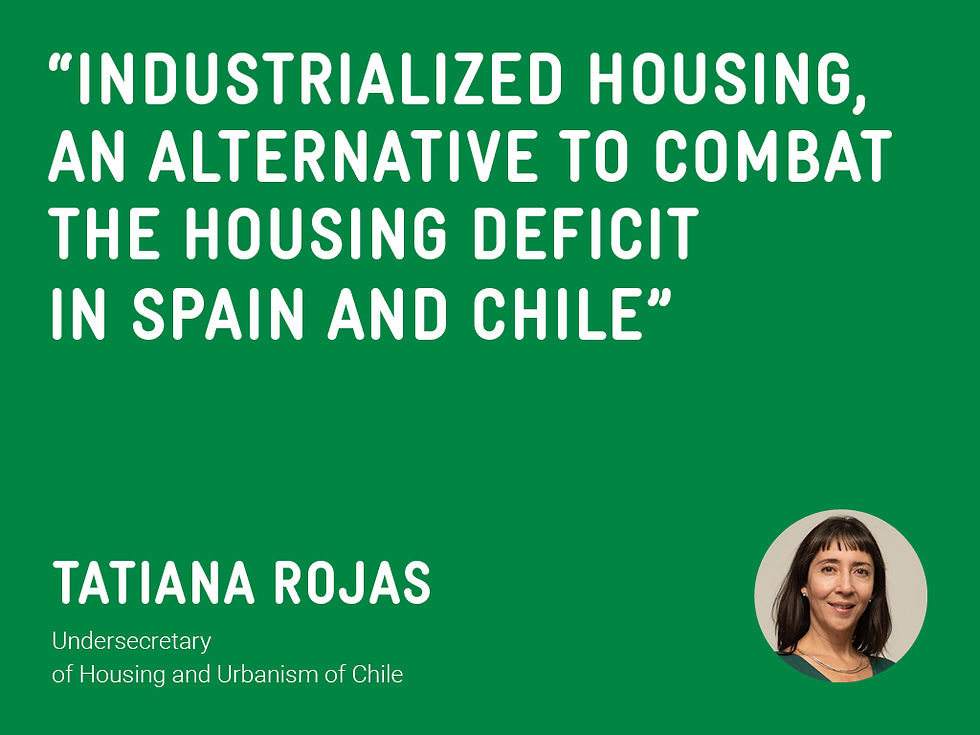Industrialized housing, an alternative to combat the housing deficit in Spain and Chile
- Housing and Urbanism of Chile
- Jun 1, 2023
- 2 min read

Chile is a country in which, unfortunately and from time to time, we face various natural and anthropic catastrophes, mainly due to the diversity of our geography, which is currently increased by the effects of climate change.
The human aspect is the first that must be considered by the State when facing a catastrophe, empathizing with the pain of those who suffer and putting ourselves in the position of the others.
Think about subsequent actions. This imposes on us the double challenge of acting combining an exact dose of humanity and technical tools.
Then comes everything else, starting with the challenges of speedy reaction and proactivity in reconstruction plans, collecting what has been learned and advancing in new strategies that allow us to face these emergencies, since there will always be a particular characteristic that forces us to innovate. An example of this learning has been the approach to the reconstruction of Viña del Mar after the fire that affected that city in December 2022. But the housing emergency does not occur exclusively due to natural catastrophes. The consideration of housing as a good investment above its social function and guarantee of rights causes havoc in all countries. In this sense, to deal with this conflict, both Chile and Spain are developing public policies to increase or encourage the generation of affordable and social housing parks within the reach of the most vulnerable population.
To correct said affordable housing deficit, industrialized housing is one of the innovative axis of our Housing Emergency Plan, although it is not a new experience. During the government of Salvador Allende and, specifically, after the 1971 earthquake, numerous industrialized housing projects were already developed.
Today, more than 50 years after that initiative, industrialization is one of the alternatives to improve productivity in the construction sector.
The industrialization of housing is a faster, more sustainable and less polluting alternative than the traditional way, which in no case is detrimental to the quality of the construction and, in fact, poses greater technological demands for the sector.
Similar initiatives are also being promoted in Barcelona, a city with which we have also shared experiences in cooperative housing.
In the context of housing emergency, at the Ministry of Housing and Urbanism we know that, in addition to housing, we have the duty and the commitment to promote comprehensive interventions that consider the urban and the socio-community and, by the way, with a focus on disaster risk prevention.
Finally, for this management to be successful, it must incorporate all the actors in society, with public-private cooperation being especially relevant, considering civil society, companies, NGOs and different public institutions. This collaboration is transcendental to collect the richness and diversity of the communities that inhabit the length and breadth of the country, improving their quality of life.
While Spain is debating what could be its first democratic housing law, Chile is beginning to build a new approach to facilitate access to housing, in the context of the debate that could culminate in the medium term with the recognition of the right to housing in the new Constitution. Two emerging models that share not only challenges, but also lessons learned.


Comentarios